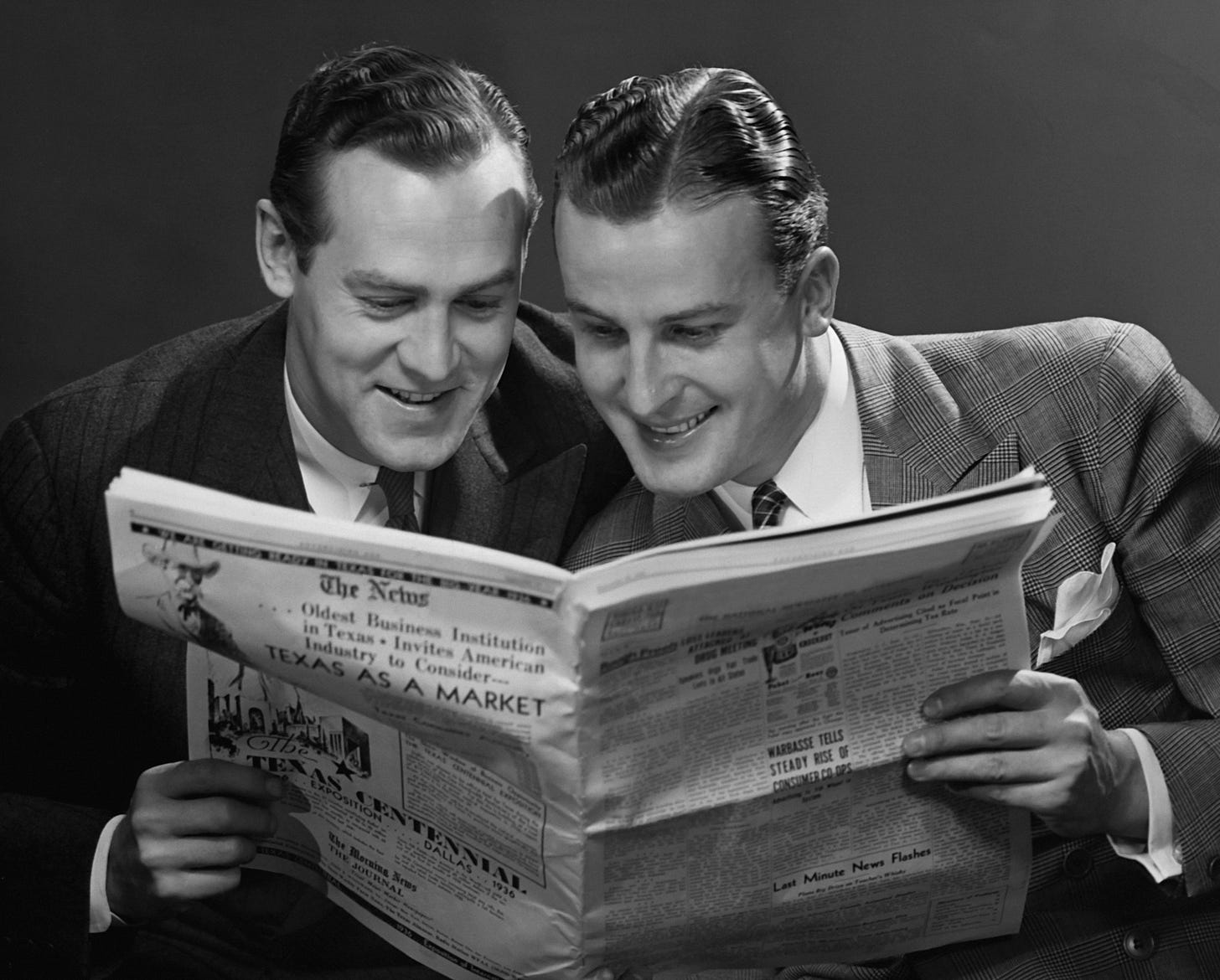I Don't Miss the Newsroom
A belated response to Maureen Dowd
A few weeks ago, Maureen Dowd, a celebrated columnist for the New York Times, published a much-discussed column on the newsrooms of yore. Dowd lamented the rise of remote work and the emptying out of the classic newspaper office, which was once a very spirited place. Dowd reminisced about the Washington Star, a newspaper where she got her start in the 1970s, a riotous place where hot tips, gossip, and many a joke were traded. Electricity was everywhere. Eccentricity abounded.
Dowd:
I don’t want this to be one of those pieces that bang on about how things used to be better and they’ll never be as good again.
But when it comes to newsrooms, it happens to be true…
…The legendary percussive soundtrack of a paper’s newsroom in the 1940s was best described by the Times culture czar Arthur Gelb in his memoir, “City Room”: “There was an overwhelming sense of purpose, fire and life: the clacking rhythm of typewriters, the throbbing of great machines in the composing room on the floor above, reporters shouting for copy boys to pick up their stories.” There was also the pungent aroma of vice: a carpet of cigarette butts, clerks who were part-time bookies, dice games, brass spittoons and a glamorous movie-star mistress wandering about. (The Times never went as far as Cary Grant’s editor did in “His Girl Friday,” putting a pickpocket on the payroll.)
Forty years later, when I began working in the Times newsroom, it was still electric and full of eccentric characters. The green eyeshades were gone, and nobody yelled “Hat and coat!” to send you out on breaking news. And it was quieter as it computerized.
I had had a taste of the old louche glamour at The Washington Star. When I started, I was a clerk on the 9 p.m. shift; afterward we would go to the Tune Inn, the only bar on Capitol Hill that would serve Bloody Marys at dawn.
My job was to type up stories on my Royal typewriter, with carbon paper, dictated by reporters who called in from the field, including from the trial of the Watergate burglars; it could get rowdy — and not just because mice occasionally ran across our keyboards.
An editor sent me out for beer on deadline and then almost fired me when I brought back Miller Lite. Reporters had temper tantrums, smashing their typewriters or computer terminals on the floor.
Dowd is right that this world will never return. Newsrooms, unless there’s some unforeseen financial revolution in the next few years, will never be restored to their twentieth century peak, and yet another generation will miss out on this glorious cacophony. A journalist could make many friends in a newsroom, like any office. Meanwhile, long days at home, alone, can lead to plenty of alienation and isolation. For the younger generation that has never known what it’s like to show up in an office every weekday, there’s an understandable longing for that kind of world, where much of life was lived beyond the walls of an apartment.



